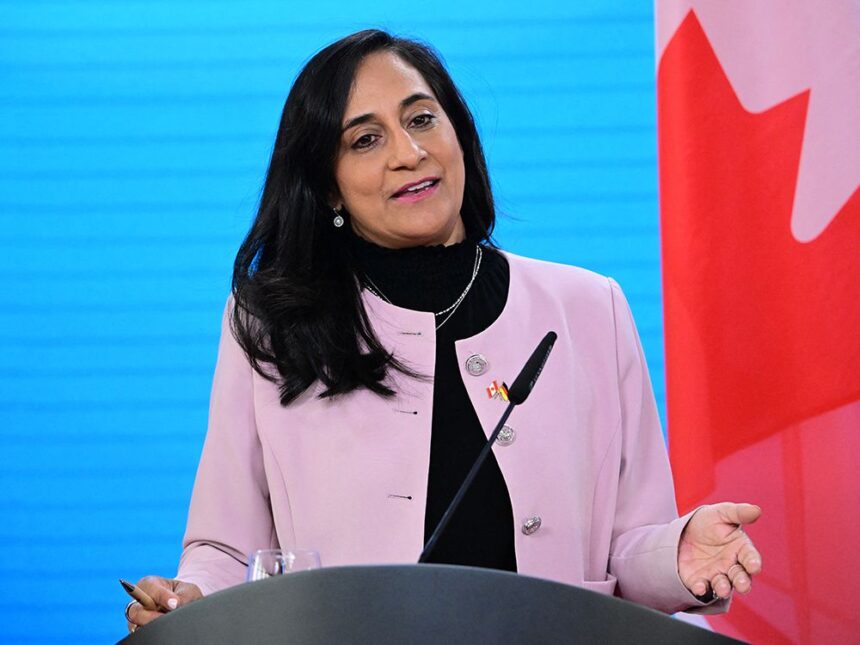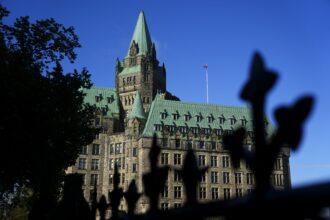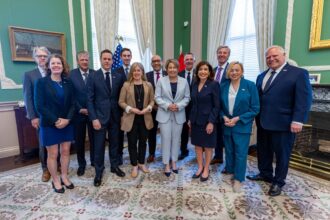As storm clouds gather over global trade relations, Industry Minister Anita Anand is setting sail for Southeast Asia this week, carrying with her the ambitious blueprint of Canada’s evolving Indo-Pacific strategy. The ministerial mission to Malaysia and Japan represents a crucial step in Ottawa’s efforts to diversify trade relationships beyond traditional partners while strengthening security cooperation in a region increasingly defined by geopolitical tension.
“This visit comes at a pivotal moment for Canada’s economic future,” said Anand in a statement before departing. “We cannot afford to sit on the sidelines while the Indo-Pacific region shapes the rules that will govern global commerce for decades to come.”
The high-profile trip follows Finance Minister Chrystia Freeland’s recent announcement that Mark Carney, former Bank of Canada governor, will spearhead a comprehensive review of Canada’s economic security priorities. Carney’s involvement signals the seriousness with which Ottawa views the interconnection between trade and national security in an era of fragile supply chains and technological competition.
Anand’s itinerary includes meetings with Malaysian Prime Minister Anwar Ibrahim and key members of Japan’s cabinet, focused primarily on critical minerals, artificial intelligence governance, and defense technology collaboration. These sectors represent what government officials describe as the “new frontiers” of economic security—areas where commercial interests increasingly overlap with national security concerns.
The stakes could hardly be higher. The Indo-Pacific region accounts for over 60% of global GDP and contains some of the world’s fastest-growing economies. Yet Canada has historically underperformed in this vital market compared to allies like Australia and the United Kingdom.
“We’ve been slow off the mark,” acknowledged David Mulroney, former Canadian ambassador to China, in an interview with CO24 Business. “This visit represents a recognition that our economic prosperity and security are increasingly tied to deeper engagement with Indo-Pacific nations beyond China.”
In Malaysia, discussions will center on semiconductor manufacturing and supply chain resilience—critical concerns after pandemic-era disruptions exposed vulnerabilities in global production networks. Japan talks will emphasize expanding cooperation on quantum computing research and cybersecurity frameworks, building on the recently signed Canada-Japan Action Plan.
Trade experts note that Anand’s dual portfolio—overseeing both industry and defense procurement—makes her uniquely positioned to advance Canada’s integrated approach to economic security. This integration represents a significant evolution in Canada’s trade policy, which has traditionally treated commercial interests separately from security considerations.
“What we’re witnessing is a fundamental recalibration of how democracies approach trade,” explained Meredith Lilly, the Simon Reisman Chair in International Affairs at Carleton University. “The line between economic policy and national security has effectively disappeared.”
The mission also carries domestic political implications. With economic anxiety rising at home and world news headlines dominated by conflicts and trade tensions, the Liberal government is eager to demonstrate concrete progress on its Indo-Pacific strategy, first unveiled in 2022 with $2.3 billion in funding commitments.
Critics question whether these efforts come too late, as regional trade architectures like the Comprehensive and Progressive Agreement for Trans-Pacific Partnership (CPTPP) have already taken shape without significant Canadian influence. Opposition leaders have called for more ambitious trade targets and clearer security commitments.
Nevertheless, business leaders have generally welcomed the renewed focus on Asia-Pacific markets. The Business Council of Canada described Anand’s trip as “a meaningful step toward diversifying our trade relationships” in regions crucial to future economic growth.
As global power dynamics shift and economic security concerns reshape international trade, can Canada successfully position itself as a trusted partner in the Indo-Pacific century, or will it remain perpetually playing catch-up in the world’s most dynamic region?










